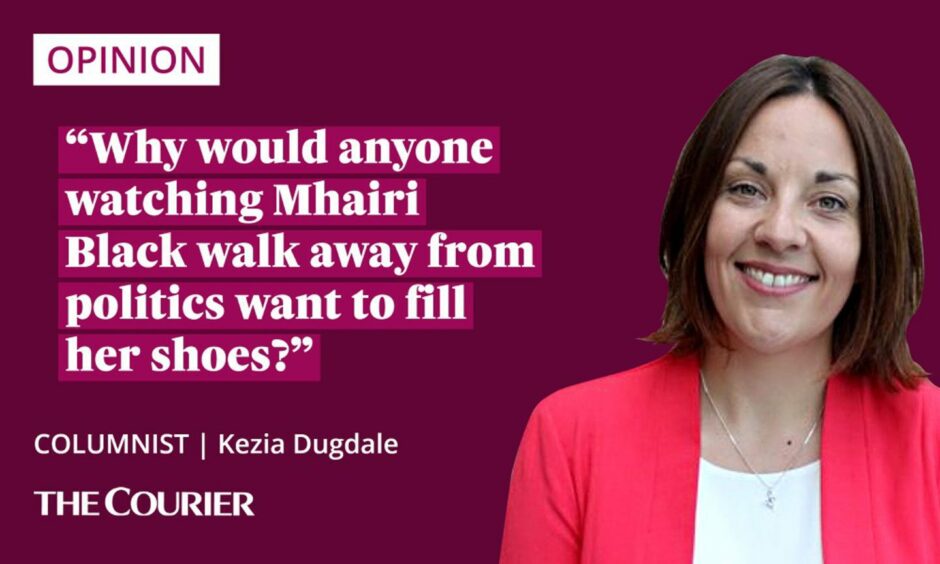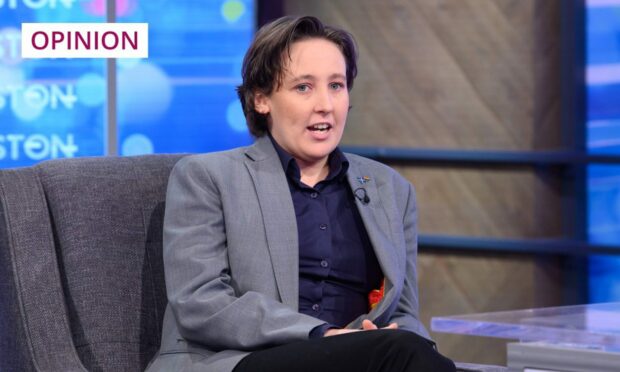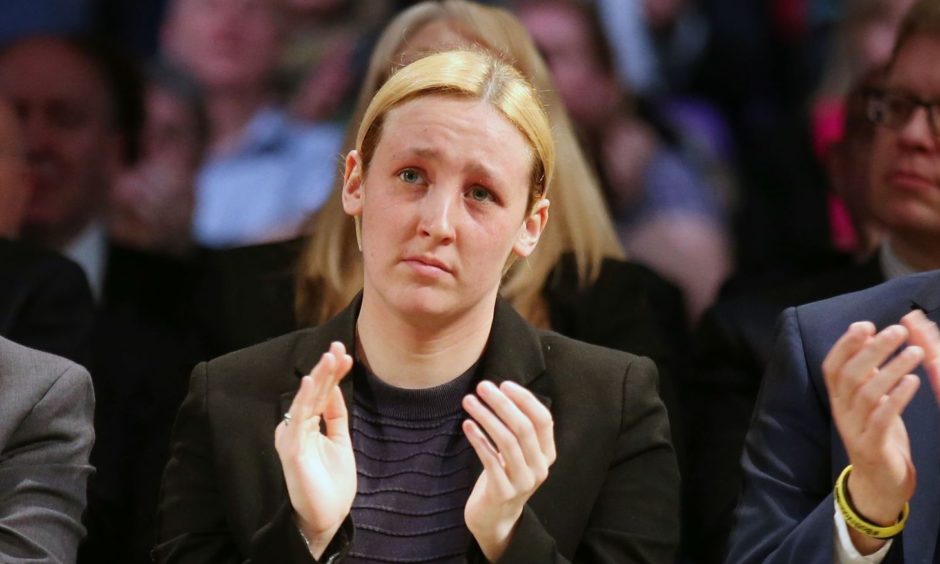Mhairi Black is not the first woman to make an early exit from the political scene citing a toxic political culture. But wouldn’t it be lovely if she was the last?
I didn’t have to agree with Mhairi Black in order to understand her value in our political system.
Elected at just 20, she was a symbol of young people’s anger and agency.
Yes she represented a particular ideology and constitutional stand point, but she also embodied the possible for a whole generation.
If she could command the House of Commons aged 20, as a young gay woman from Paisley, you could do anything.
When someone shouts “toxic”, the default response in politics is to revert to your own experience and world view and say “let me tell you what’s toxic…”
So this is my turn.

What’s toxic is waking each day and looking to Twitter for your daily news.
These days that’s like wading through blades of misogyny and anonymous abuse in search of a sliver of enlightenment.
Forget Twitter for a second though – it’s dying and doing so slowly and painfully – and replace it with the morning radio.
While the language and tone here might be better, adding volume makes it a largely shouty and fractious experience.
What normal citizen wants to start the day listening to a well-briefed radio presenter try to get one over a well-drilled politician every day at 10 past the hour.
This is combat over content.
It might make the headlines but it rarely makes news.
Blame for toxic politics goes beyond parties and press
You remember? Proper news. Well researched, in-depth information, accompanied by reasoned analysis.
For that you must buy a paper. Though even then, with many in the newspaper industry struggling, much of the news we read comes from the public relations industry or a political party press release.
All are reaching for the most dramatic headline, drawing their language from a Marvel comic book. X slams Y. Z hits back.
It’s all just a bit tiresome.
Was it always like this? Possibly and it’s just that there’s more of it. More information, more competition.
The toxic political culture is not one individual’s fault, nor one party, one side or one paper.
It doesn’t actually matter who started it, we’re all complicit for playing along.
So what’s to be done about it?
Toxic politics needn’t be the norm
Well we might be reaching a critical juncture.
Twitter, the driver and mood engine behind much of our political culture, does feel as if its days are numbered.
It now faces a serious challenger in the former of a new app, Threads, from Meta (the artist formerly known as Facebook).
Still advert free, it promises kinder conversations.
Are we naive to hope that’s possible?
Imagine if every politician and activist was to sign a covenant ahead of joining Threads: “Thou shalt not be a tw*t online”.
And imagine if there were actual penalties and meaningful punishments for breaking the rules.
My nearly three-year-old niece gets a sticker every time she’s kind, or shows some good behaviour at nursery. There’s a reward when she fills her sheet.
Perhaps Threads could dish out Clubcard points, Avios, or even a discount voucher for fuel.
I’m jesting, but only slightly.
The toxicity of politics won’t change without a common incentive to do so.
A combination of responsible social media outlets and well funded, sustainable investigative journalism that is prepared to focus on the quality of content, not the quantity of clicks, would be a good starting point.
Without that, why would anyone watching Mhairi Black walk away from politics want to fill her shoes?













